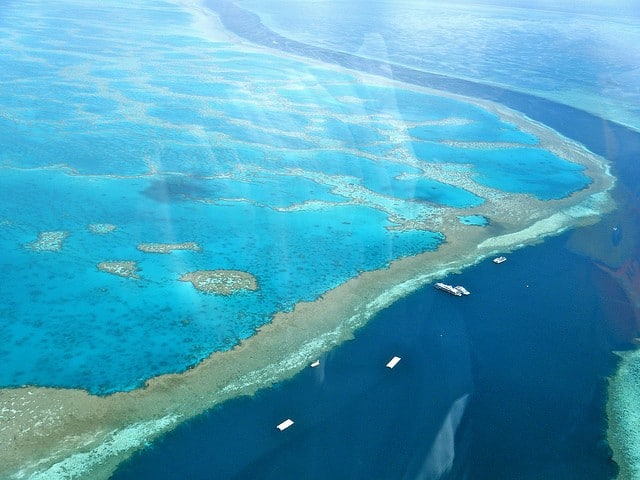Researchers have found that some corals already have the genes to help tolerate a rise in water temperature due to global warming.
In addition to being naturally beautiful, coral reefs are crucial to the health of the oceans and the world as a whole. Coral reefs are home to countless species of organisms. These reefs have come under ever-increasing bombardment from rising water temperatures, increased acidification, and pollution. Rising water temperatures causes bleaching — massive coral death due to loss of a symbiotic algae, which the corals depend on for food. Twenty percent of the world’s reef ecosystems are already dead while the rest are in danger of following suit.

Some good news for coral reefs, published in Science, comes from scientists at Oregon State University, the University of Texas, and the Australian Institute of Marine Science (AIMS). They have found that in some locations, the coral, Acropora millepora, have adapted to water with temperatures up to two degrees Celsius higher than normal. The corals in this study that showed increased heat tolerance were from the northern edge of the Great Barrier Reef, while the corals lacking this tolerance were from the same species at Orpheus Island, over 500km to the south.
Their research shows that when the corals with greater heat tolerance are selectively bred with corals without this trait, the beneficial tolerance characteristic has a high probability of being passed to the offspring. “Averting coral extinction can begin with something as simple as exchange of coral immigrants across latitudes, which will happen naturally through larval dispersal but can be jumpstarted by humans moving adult corals,” says Mikhail Matz, integrative biology professor at the University of Texas at Austin. With some help from humans, this process can be achieved much sooner — to help corals stay ahead of the global warming curve.
The study also shows that half of the increased resilience to elevated temperature is attributed to altered gene expression in the mitochondria of the coral larvae. The gene for the mitochondria is maternal, making the passing of genetic material from the mother of increased importance. This study is the first of its kind to suggest such a large role mitochondria might play in mitigating increased temperature, so this is a hypothesis at the moment.
Other stressors to coral are acidification, from increased carbon dioxide levels in the atmosphere, and pollution. While increased water temperature was the primary focus of this report, it is widely believed that corals will have to adapt to more than one stressor simultaneously if they are to survive. Some preliminary results suggest that some corals are better suited to coping with multiple stressors than others. More research is underway on this topic.
Article written by Jean Philippe from www.dailydive.com
 Destinations
Destinations









nice post , Scuba Diving in Goa is great a sport love to be with cute fishes for a while .
Regards